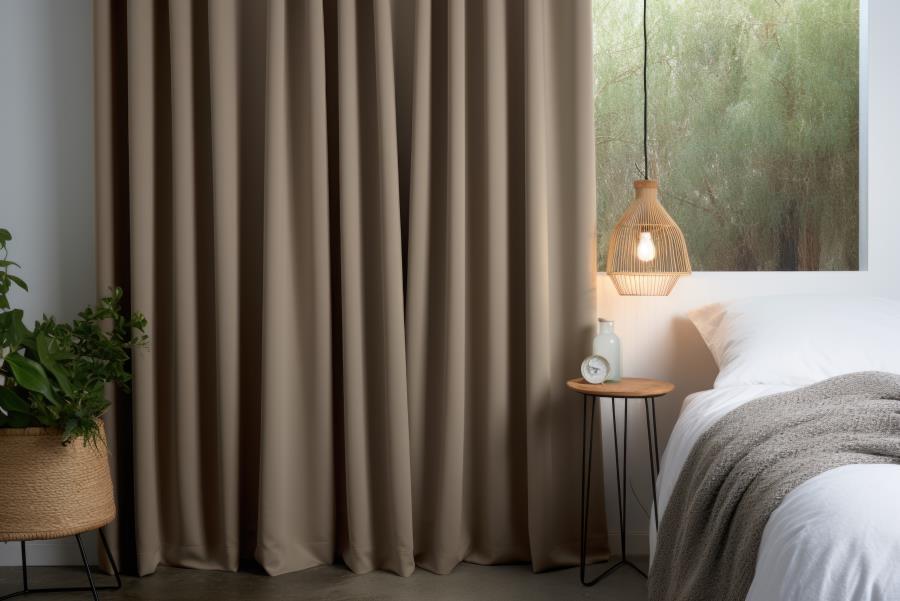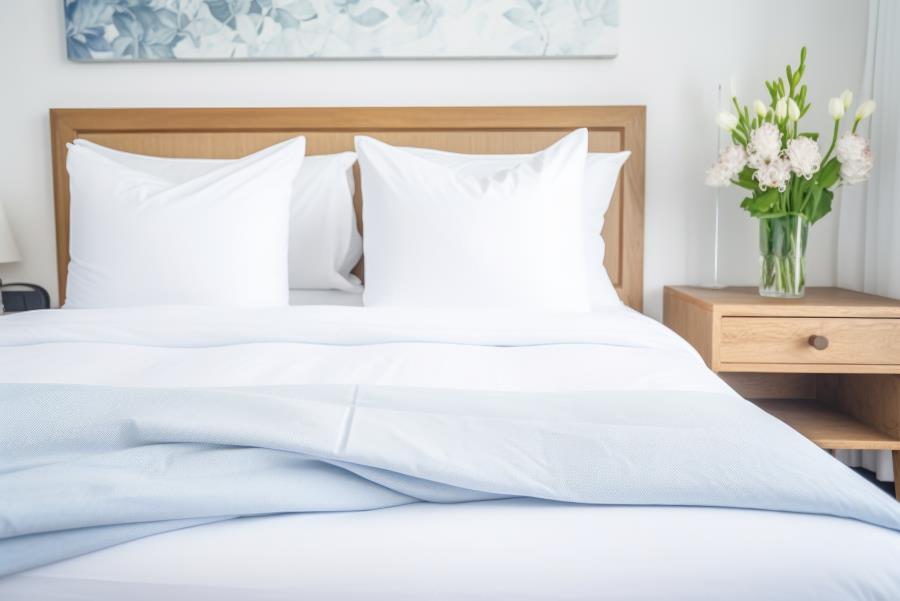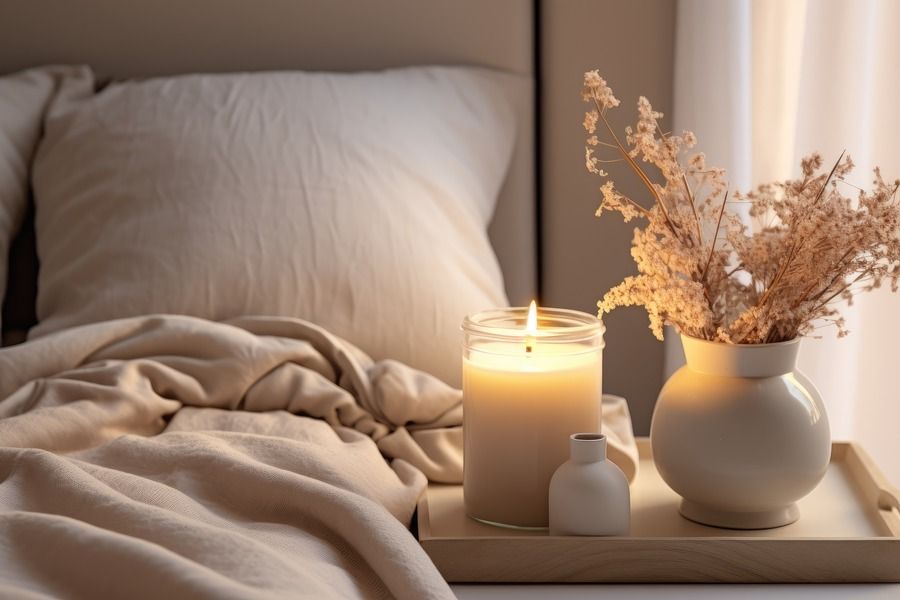Written in collaboration with Sleep by Ernest Hemingway
Easily one of the most important rooms of any home is the bedroom. Aside from the importance of finding the perfect mattress, the orientation and layout of your bedroom directly correlates to the quality of the sleep that you get each night.
By prioritizing the layout and organization of your bedroom, you can improve your overall mental and physical health. Here are a few important tips to implement when designing your ideal bedroom.
Incorporate Feng Shui

"According to feng shui, the bed is the most important piece of furniture in your home, so invest in a high-quality, comfortable mattress and bedding. It is also important to position your bed so that you may see the bedroom door but not be in direct alignment with it. If you cannot avoid this positioning, there are workarounds such as hanging a small crystal ball between the foot of your bed and the door, or, if the room is sizable, place a screen or free-standing shelf halfway between the bed and the door. Your headboard should be against a wall and there should be space on either side of your bed, even if it’s only a few inches on one side. Ideally, keep the space under your bed completely clear, otherwise, be conscious of what you store there. Shoes under your bed can make you subconsciously feel like you are moving and luggage projects a feeling of being on the go – neither feel restful. Storing sleep related items like linens and blankets is a better option." - Alison Draper, Brown Harris Stevens Agent
Reduce Noise and Light Disturbances

"I make it as dark as possible, minimize EMFs, maximize air quality, employ feng shui and have an organic and firm bed for back support. I do the aforementioned by minimizing light with black out shades, minimizing EMFs with a harmonizing cube, turning off my Wifi and removing electronics before sleeping, maximizing air quality with have a high end air purifier, and I have an organic nontoxic firm mattress for comfort." - Jay K. Overbye, Brown Harris Stevens Agent
Make your bedroom conducive to sleep by keeping it cool, dark, and quiet. Consider blackout curtains, earplugs, or a white noise machine if necessary.
"Lighting should promote relaxation. Use blackout curtains or blinds to block out external light sources and opt for soft, warm and dimmable lighting. Consider bedside lamps with adjustable settings and avoid bright overhead lights." -- Alison Draper, Brown Harris Stevens Agent
Choose the Right Mattress and Pillows

A comfortable and supportive mattress and pillows are crucial for a good night's sleep. Replace them when they start to show signs of wear and tear.
Control Temperature and Humidity

Ensure your bedroom is at a comfortable temperature for sleeping. Typically, a cooler room (around 65-70°F or 18-21°C) is better for sleep.
Use Your Bed for Sleep Only

Train your brain to associate your bed with sleep, not work or other stimulating activities. Compliment this function with appropriate lighting and aromatherapy. Optimizations like these are easy, affordable, and can truly make a difference in designating your bedroom as a safe haven for rest and relaxation.
"Aside from softening your wall colors, décor, and lighting, I think a missing element in bedrooms is often aromatherapy. Scents are absolutely an important detail in a room design, whether that’s a fashionable oil diffuser or an incense holder. Our brain associates scents with memories, even if they’re everyday routines, so fragrance correlated to our relaxation is important. My tip to add this design aspect to your safe space is fill your room with lavender and/or chamomile. I love Jo Malone and Aroma360!" - Louise Phillips Forbes, Brown Harris Stevens Agent



